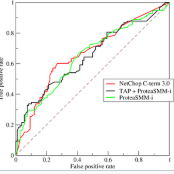Parkinson's disease (PD) is a prevalent neurodegenerative disorder known for its impact on motor neurons, causing symptoms like tremors, stiffness, and gait difficulties. This study explores the potential of vocal feature alterations in PD patients as a means of early disease prediction. This research aims to predict the onset of Parkinson's disease. Utilizing a variety of advanced machine-learning algorithms, including XGBoost, LightGBM, Bagging, AdaBoost, and Support Vector Machine, among others, the study evaluates the predictive performance of these models using metrics such as accuracy, area under the curve (AUC), sensitivity, and specificity. The findings of this comprehensive analysis highlight LightGBM as the most effective model, achieving an impressive accuracy rate of 96% alongside a matching AUC of 96%. LightGBM exhibited a remarkable sensitivity of 100% and specificity of 94.43%, surpassing other machine learning algorithms in accuracy and AUC scores. Given the complexities of Parkinson's disease and its challenges in early diagnosis, this study underscores the significance of leveraging vocal biomarkers coupled with advanced machine-learning techniques for precise and timely PD detection.
翻译:暂无翻译



